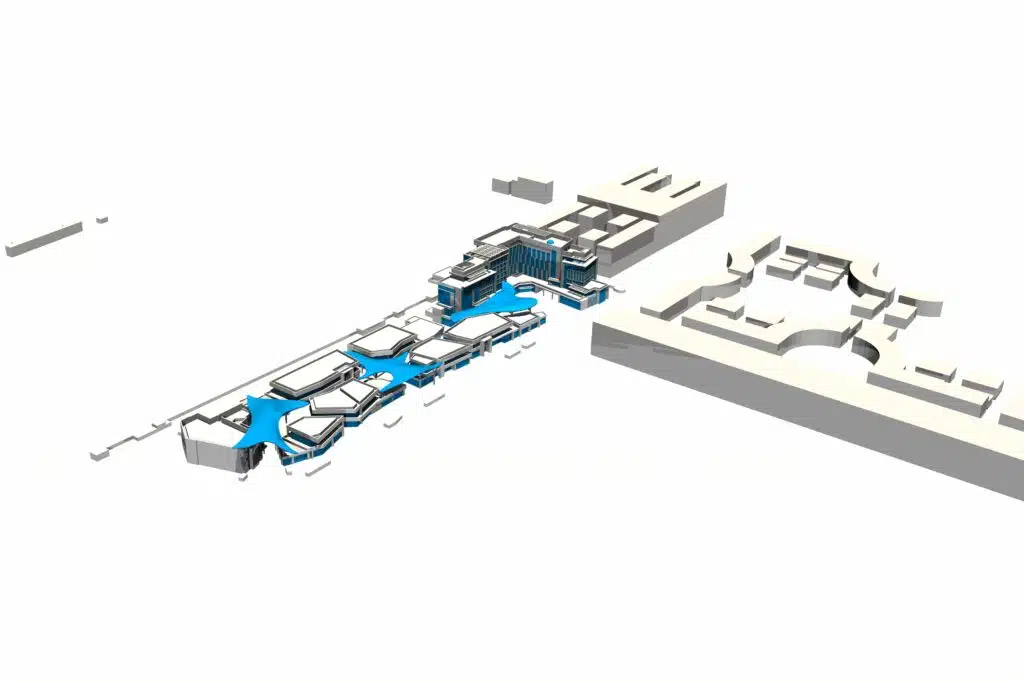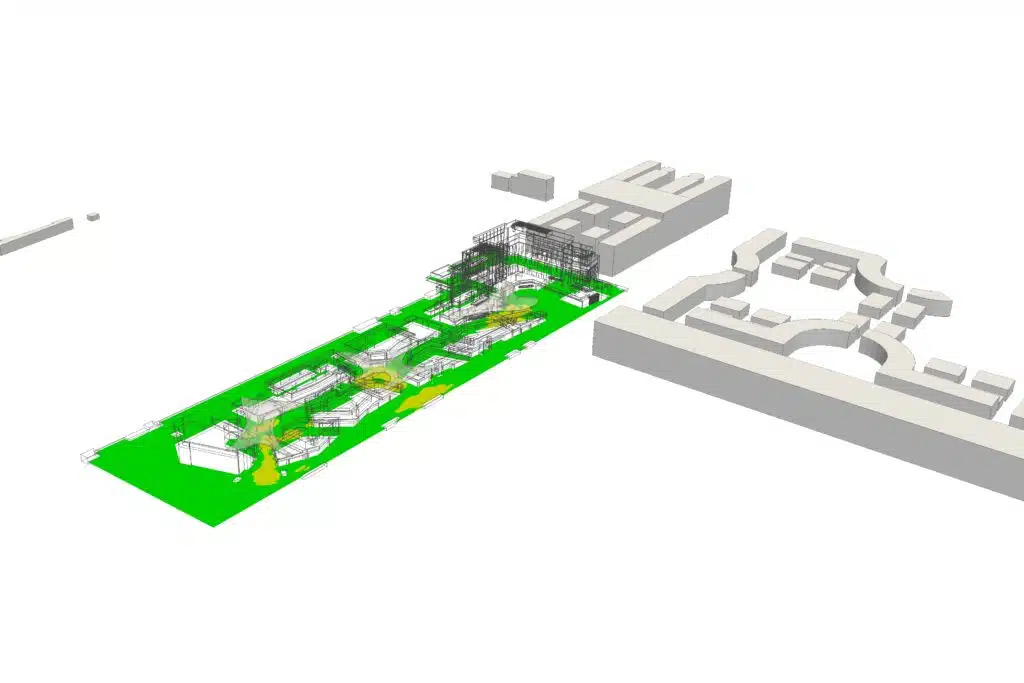Outdoor Thermal Comfort
In hot or cold climates, increasing the usability of outdoor spaces throughout the seasons is invaluable. For example, outdoor restaurants can stay open longer and shopping experiences become more pleasant. Equally, spaces where occupant comfort has been ignored can create very negative experiences.
Windtech has developed outdoor thermal comfort studies, thermal comfort studies, and outdoor and environmental studies for all scenarios and has experience with everything from small residential developments to huge shopping malls.
We use a range of metrics in our thermal comfort studies, including the Universal Thermal Comfort Index (UTCI), the most widely recognised thermal comfort index globally. Our method accounts for solar load, humidity, wind, and glazing/material properties throughout development, and we present results in colour contour plots of the occupied spaces of the development.
Case Study: Kings Walk Mall, Jeddah
A hybrid wind tunnel and computational fluid dynamics (CFD) approach was used to assess the mall’s outdoor conditions.
Kings Walk Mall, Jeddah – 3D CFD outdoor wind and thermal comfort CAD model with glazing and wood boundary conditions highlighted.
Initially, a wind tunnel model was fabricated and tested at Windtech’s boundary layer wind tunnel facilities to determine the approaching flow conditions to the site. This data was then used as boundary conditions and to validate the CFD model to confirm the accuracy of the computational domain. The computational model was then run, incorporating buoyancy effects, thermal models, glazing properties, humidity, and solar properties to assess the occupant’s thermal comfort within the precinct.
This outdoor thermal comfort study was undertaken for various scenarios, including summer day, summer night, shoulder season day, and shoulder season night.
The results of the thermal comfort study accurately modeled the thermal comfort of the outdoor regions of the precinct, illustrating the thermal comfort of the occupants with respect to Mean Radiant Temperature (MRT), Standard Effective Temperature (SET), and Universal Thermal Comfort Index (UTCI).




